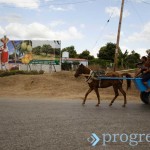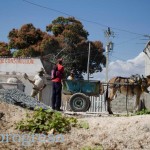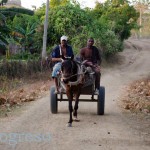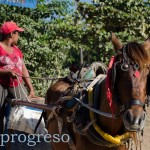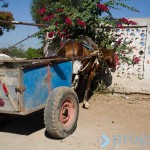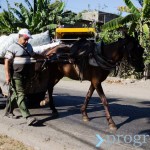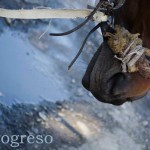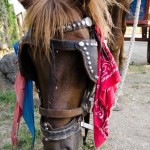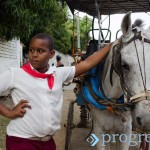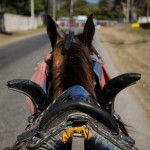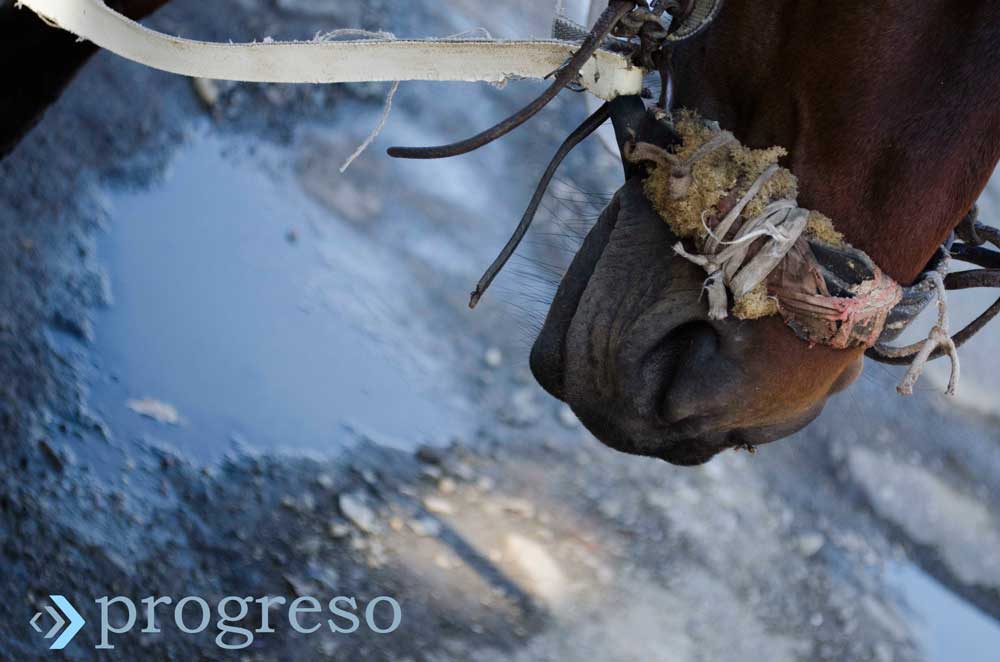
Equine force
Pajarito, Liviano, Gaviota, Bandolero and Baconao are horses, real horses, no metaphor here and without the breadth of metaphor. They call them grades, ordinary horses without much breeding and accustomed to working with their owners, sometimes on a trail carrying supplies that are sold, or transporting the mangoes produced in El Caney, Santiago de Cuba, during the season. The winter and droughts are tough on these horses. The grass is already scarce and their owners must finagle a can of molasses to feed them, which they eventually find on the black market.
For the past three years Pajarito does communal work collecting the waste produced in the village. Liviano goes from one place to another carrying sand for the new construction in El Caney. Gaviota, quietly grazing, also knows what it is to load a wheelbarrow of sand or cement. Meanwhile, Bandolero neighs and waits for a new client to hire him to retrace the dusty roads, while Baconao readies to pick up and take home the children at the end of the school day.
So goes the daily life of these horses who at times endure the abuse and the excessive love of their owners. They are part of the landscape, and the social, economic and even political life of the village of El Caney.
Progreso Semanal/ Weekly authorizes the total or partial reproduction of the articles by our journalists, so long as source and author are identified.


